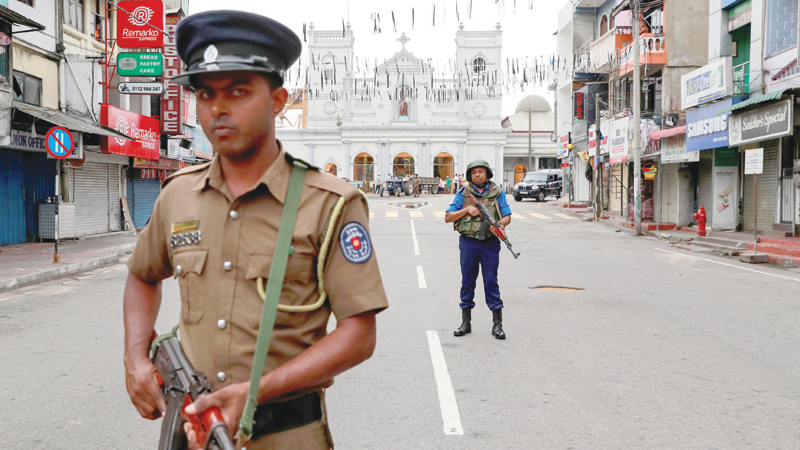

COLOMBO: Sri Lankan security officials have warned that militants behind Easter Sunday’s suicide bombings are planning attacks and could be dressed in uniform, as the archbishop of Colombo complained about insufficient security around churches.
The militants were targeting five locations for attacks on Sunday just passed or on Monday, security sources said.
“There could be another wave of attacks,” the head of the police ministerial security division (MSD) said in a letter to lawmakers and other officials seen by Reuters on Monday.
“The relevant information further notes that persons dressed in military uniforms and using a van could be involved in the attacks.”
There were no attacks on Sunday and security across Buddhist-majority Sri Lanka has been ramped up, with scores of suspected fighters arrested since the April 21 attacks on hotels and churches that killed more than 250 people, including 40 foreign nationals.
The government has also banned women from wearing face veils under an emergency law that was put in place after the attacks.
There were concerns within the Muslim community that the ban could fuel tensions in the multi-ethnic nation. But government officials said it would help security forces identify people as a hunt for any remaining attackers and their support network continues across the Indian Ocean island, which was gripped by civil war for decades until 2009.
The Archbishop of Colombo, Malcolm Ranjith, said that security had not been sufficiently stepped up around churches.
“We are not satisfied with the security arrangements and urge authorities to ensure our safety,” he told reporters.
Authorities suspect members of two little known groups — National Thawheedh Jamaath (NTJ) and Jammiyathul Millathu Ibrahim — of carrying out the Easter attacks, though IS has claimed responsibility.
Prime Minister Ranil Wickremesinghe said a tight-knit group of people was involved, mostly close friends and families. They spoke face-to-face, possibly to evade electronic surveillance.
“They were small enough that they were not using normal communications, instead meeting each other,” Wickremesinghe said.
He added the coordinated bombings, the type of explosives used and the tightly guarded plot suggested the bombers had guidance. — Reuters
Oman Observer is now on the WhatsApp channel. Click here



